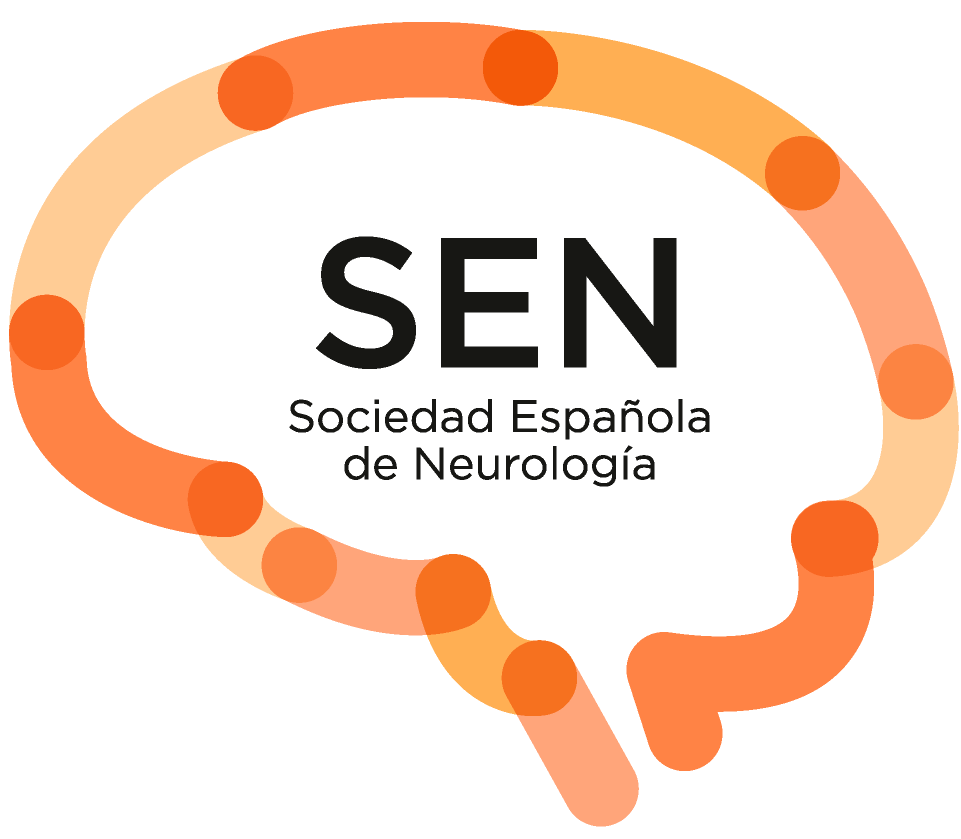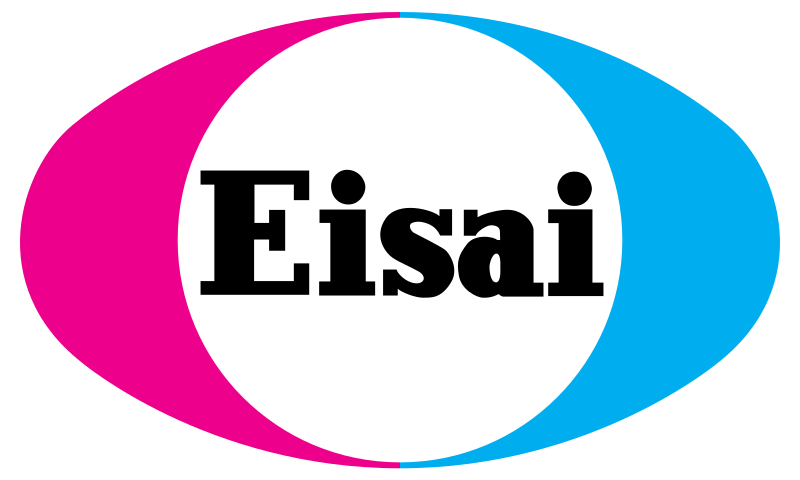Do you represent a company or are you a particular person?
Press journalists can register at the following link

The International Congress on Neurodegenerative Diseases will be held on Málaga, once more under the presidency of H.M. Queen Sofía, and returns to its regular date on September 19-22 to coincide and celebrate International Alzheimer's Disease day.
These meetings have been organized, since 2013, by Queen Sofia Foundation, together with CIEN Foundation and CIBERNED and, this year, for the first time, by the Spanish Society of Neurology. The City and Provincial Councils of Málaga will collaborate by providing the Edgar Neville Auditory and making available other resources to support the Congress.
As in years before, this scientific Congress aims to bring society closer to the advances of research in the fight against Alzheimer's and other neurodegenerative diseases and, above all, to raise the evident need to advance in the search for global solutions and responses due to their social consequences.
The International Congress on Neurodegenerative Diseases will focus on research advances in neurodegenerative disorders. It will offer a forum to discuss a range of areas of interest related to basic, clinical and translational aspects of the research on neurodegenerative diseases, providing researchers from all over the world with opportunities to discuss and share experiences and entertain topics that stretch into the future and will be vital to procure the advancement into knowledge and treatment for these diseases.
Researchers from several countries such as Rik Ossenkoppele (Amsterdam University), Jorge Sepulcre (Harvard University), Nick Ashton (Gothenburg University), Alberto Lleó (Hospital Santa Creu i Sant Pau-CIBERNED), will take part in the congress. Dr. Jean-Charles Lambert (Institut Pasteur of Lille) will give the Keynote Lecture.


Jean Charles Lambert and Pascual Sánchez Juan, Institute Pasteur Lille/CIEN

Auditorio
15:10 Francisco Pan-Montojo , CIBERNED, Neurologische Klinik am Sorpesee, Sundem
"Using worm strategies to survive dessication as neuroprotective therapies for neurological diseases"
15:40 David Otaegui , CIBERNED, ISS Biodonostia
"Extracellular vesicles in neurodegeneration, more than a biomarker"
16:10 Manuel Comabella, CIBERNED, Hospital Universitario Vall d’Hebron
"Prognostic biomarkers in multiple sclerosis"
16:40
Diego Clemente, CIBERNED, Hospital Nacional de Parapléjicos de Toledo
"Clinical and therapeutic implications of myeloid-derived suppressor cells in multiple sclerosis"
Sala Fuengirola - Edificio "La Térmica"
15:05 Olivier Quenez, CHU Rouen, University of Rouen Normandie
"CNV analysis based on exome data with replication in EADB"
15:20 Gael Nicolas, CHU Rouen, VIB-UAntwerp Center for Molecular Neurology
"GWAS on EOAD patients"
15:35 Sven van der Lee, Amsterdam UMC
"CNV analysis"
15:50 Fahri Küçükali, VIB-UAntwerp Center for Molecular Neurology
"Update on TWAS"
16:05 Gonzalo Leguia Fauro, VIB-UAntwerp Center for Molecular Neurology
"Update on EADB GWAS lead variant interaction analysis"
16:20 Alex Salazar, Amsterdam UMC
"First findings in the long read sequencing data"
16:35 Valentina Escott Price, Cardiff University
"Machine learning analysis"
16:50 Pablo García, Fundaciò ACE
"ROH"


Auditorio
17:45
M. Estrella Fernández de Sevilla, CIBERNED , Instituto Cajal, CSIC
Young Investigator Award
"Insulin-like growth factor I mitigates post-traumatic stress by inhibiting AMP-kinase in orexin neurons"
18:05
María Carmona-Iragui,CIBERNED, Hospital de la Santa Creu i Sant Pau,
Young Clinical Investigator Award
"Diagnostic and prognostic performance and longitudinal changes in plasma neurofilamente light chain concentrations in adults with Down syndrome in a cohort study"
18:30
Pedro Gómez Gálvez, CIBERNED, IBIS, MRC Cambridge, UK
"From pixels to insights: exploring neurodegenerative diseases through image analysis approaches"
19:00
Luzma García |
Juan Luque, CIBER, Plataforma de desarrollo tecnológico
"La transferencia de conocimiento en CIBER: estrategia de futuro"
Sala Fuengirola - Edificio "La Térmica"
17:40 Itziar de Rojas, Fundaciò ACE
"Optical mapping"
17:55 Celine Bellenguez, Institute Pasteur Lille
"Global GWAS meta-analysis in Alzheimer's disease"
18:10 Julie Leborgne, Institute Pasteur Lille
"Chromosome X and risk of developing Alzheimer's disease"
18:25 Aude Nicolas, Institute Pasteur Lille
"Association of a genetic risk score across multi-ancestry"
18:40 TBD, Illumina
"Title"
18:55 Benjamin Grenier-Boley, Institute Pasteur Lille
"Haplotype-genome wide association in EADB"
19:10 Jean Charles Lambert and Henne Holstege, Institute Pasteur Lille/Amsterdam UMC
"Discussion about the Amsterdam Hub and the potential merge between EADB and ADES"

Auditorio
10 min presentations (to be selected from posters)
Ruth Benavides, CIBERNED, Cajal Institute
"Alterations of pyramidal cells in Alzheimer disease"
Marta Garo-Pascual, Centre for Biomedical Technology UPM, CIEN Foundation
"Brain Signature of the Superagers of the Vallecas Project"
Alfredo Miñano, CIBERNED, Institut de Neurociències UAB
"Nr4a2 as a potential therapeutic target for Alzheimer's disease"
Ana I. Rojo, CIBERNED, Instituto de Investigaciones Biomédicas CSIC-UAM
"Defining the role of the NRF2 transcription factor in synaptic maintenance in Alzheimer’s disease"
Montse Solè, CIBERNED, Institut de Neurociències UAB
"FAIM-L ameliorates synaptic impairment and cognitive deficits in a mouse model of Tau pathology"
Albert Giralt, CIBERNED, Universitat de Barcelona
"Tight control of in vivo reprogramming in principal hippocampal neurons prevents the progression of pathological processes in a mouse model of Alzheimer’s disease"
Minerva Martinez-Castillo, CIEN Foundation
"Association between plasma proteomics and dementia neuropathology at autopsy"
Lorea Blázquez, CIBERNED, Biodonostoia Health Research Institute
"A targeted RNA sequencing approach identifies differential usage of cryptic polyadenylation in Hungtington´s disease and other neurodegenerative disorders"
Salomé Sirerol, CIBERNED, Universidad de Valencia
"Microglia: friends or foes in PD?"
Javier Palazuelo, CIBERNED, Universidad Complutense de Madrid
"An essential role for cannabinoid CB1 receptors in modulating NG2 cells differentiation during myelination and during myelin repair"
Nozha Borjini, CIBERNED, Instituto de Biomedicina de Sevilla
"Deciphering the role of microglia in Kufs disease/CLN4: Insights from transgenic mouse models expressing mutant forms of CSPα/DNAJC5"
Assumpció Bosch, CIBERNED, Institut de Neurociències UAB
"A Novel Gene Therapy Approach for ALS by Overexpressing the Pleiotropic Chronokine α-Klotho"
Sala Fuengirola - Edificio "La Térmica"
09:00 Jesper Qvist Thomassen, Rigshospitalet - Copenhagen University Hospitalen
"APOE stratified GWAS in Alzheimer’s disease"
09:15 Jiao Luo, Rigshospitalet - Copenhagen University Hospitalen
"Causality of modifiable risk factors and co-morbidities for dementia"
09:30 Elaheh Vojgani, University of Cologne
"Elaheh and Parijat: Pathway analysis in Longitudinal data common and rare variants"
10:00 Luca Kleineidam, University of Cologne
"Update on MCI GWAS"
10:15 Benton Davies, Illumina
"Accelerate Biomarker Discovery with Illumina’s Connected Software Solutions"
10:30 Rafael Campos Martin, University of Cologne
"Epigenetics and biomarkers of cognition"
10:45 Victor Andrade Fuentes, University of Cologne
"Mega PRS and cognitive decline, epigenetics"


Auditorio
11:30
Jon Infante, CIBERNED, Hospital Marqués de Valdecilla. Santander
"The search for biomarkers of premotor stages of LRRK2-associated Parkinson's disease"
12:00
Pablo Mir, CIBERNED, Instituto de Biomedicina de Sevilla
"Peripheral inflammatory immune profile in Parkinson’s disease"
12:30
Mª José Martí, CIBERNED, Instituto de Investigación Biomédica August Pi i Sunyer, Barcelona
"CSF biomarkers in atypical parkinsonism"
13:00
Miquel Vila, CIBERNED, Hospital Universitario Vall d´Hebron, Barcelona
"Neuronal vulnerability in Parkinson’s disease: beyond alpha-synuclein"
Sala Fuengirola - Edificio "La Térmica"
11:30 Kayenat Parveen, University of Cologne
"YKL-40 and sTREM2 GWAS"
11:45 Shahram bahrami, University of Oslo
"Update on the Polygenic Hazard Score and the Multimodal Hazard Score"
12:00 Jean Charles Lambert, Institute Pasteur Lille
"Adjourn"


Auditorio
15:00
Mercè Boada , CIBERNED, Fundaciò ACE
"Understanding a Multimechanistic Terapheutics Approach of AD"
15:30
Eduardo Soriano, CIBERNED, Universidad de Barcelona
"The Reelin path to Alzheimer's Disease"
16:00
Antonia Gutiérrez, CIBERNED, Universidad de Málaga
"Shedding light on microglia and microglia-like-cells in the Alzheimer's disease brains"
16:30
Javier de Felipe, CIBERNED, Instituto Cajal, CSIC
"New technologies for the microscopic analysis of the brain: applications in Alzheimer's disease"
Sala Fuengirola - Edificio "La Térmica"
Luzma García |
Juan Luque, CIBER, Oficina de Transferencia de
Conocimiento y Plataforma de Desarrollo Tecnológico
"Cómo tener un proyecto traslacional de película (la presentación que nadie pidió pero que puede salvarte de cometer muchos errores)"



9:00 Rik Ossenkoppele, Alzhimercenter Amsterdam (UMC)/Lund University
"Visualizing tau pathology in the living human brain using PET"
9:30 Juan Fortea, Hospital de la Santa Creu i Sant Pau, Barcelona-CIBER
"Biphasic cortical changes in Alzheimer Disease: A potential explanation for the (pseudo)atrophy found with anti-amyloid agents"
10:00
Jorge Sepulcre, Gordon Center for Medical Imaging (MGH)/Harvard
University Medical School
"Connectomic-Genetic Signatures in the Human Brain Neurodegeneration"
10:30 Juan Domingo Gispert, CIBER-BBN, Barcelona Beta Research Center
"Amyloid PET Imaging in the Era of Anti-Amyloid Therapies: Insights from the AMYPAD European Consortium"


With the Presidency of Her Majesty the Queen Sofia
12:30 Keynote Lecture Reina Sofia Dr. Jean-Charles Lambert, Institut Pasteur de Lille-INSERM"Step by step: towards a better understanding of the genetic architecture of Alzheimer's disease"
Introduced by: Agustín Ruiz (CIBERNED, Fundaciò ACE)


15:00 Pablo Martínez-Lage, Fundación CITA-alzheimer Fundazioa Donostia-San Sebastián
"Clinical Development of lecanemab"
15:30 Stephane Epelbaum, Eli Lilly and Company, Medical Affairs – Associate Vice
President International Business Unit
"Efficacy and Safety of Donanemab in Early Symptomatic Alzheimer’s Disease: TRAILBLAZER-ALZ 2, a Randomized Phase 3 Clinical Trial"
16:00 Discussion


17:30 Michael Scholl, University of Gothenburg/University College London
"Bridging the gap - bringing (blood-based) biomarkers into the clinic"
18:00
Nicholas Ashton, University of Gothenburg
"Blood phosphorylated tau as a biomarker for Alzheimer's pathology. A measure of amyloid pathology, tau pathology or something else?"
18:30 Alberto Lleó, Hospital de la Santa Creu i Sant Pau, Barcelona-CIBERNED
"Synaptic pathology in Alzheimer's disease: implications for novel therapies"

9:00 Gonzalo Polavieja, Fundaçâo Champalimaud, Lisboa
"Recent advancements in AI and their possible implications for medical data análisis"
9:30 Florencia Iulilta Altoida. Head of Medical Strategy and Operations
"Developing the next generation of brain digital biomarkers"
10:00
Agustín Ruiz |
Pascual Sánchez Fundaciò ACE – Fundación CIEN
"Precision Medicine Program DEGESCO"


Proyección video

11:10
José Miguel Laínez, Presidente de la SEN.
Atención neurológica en España, estado actual y desafíos
11:20
Pedro Serrano Hospital Regional de Málaga
Visión de un jefe de servicio
11:30
Mariló Almagro Presidenta de CEAFA
¿Qué piden el paciente y sus cuidadores al sistema sanitario y a los investigadores españoles?
11:40
Kina García del Mora Miembro del P.E.P.A. (Panel de Expertos de Personas con Alzheimer).
La visión del enfermo.
11:50
Pascual Sánchez Juan Fundación CIEN
Precision Medicine in Dementia prevention.
12:00 TBD
12:10 Discussion
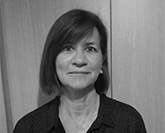
Director of the Parkinson disease and Movement Disorders Lab.
Instituto de Investigación Biomédica August Pi i Sunyer, Barcelona
Dr. Marti received her MD at the University of Barcelona, the Degree in Neurology in 1985 and the PhD in 1994 . She enjoyed a postdoctoral fellowship in the Columbia University in 1995-96. She was the Head of the Parkinson and Movement Disorders Unit at the Hospital Clínic of Barcelona and associated Professor of the University of Barcelona until 2020. She is an IDIBAPS researcher and director of the Parkinson disease and Movement Disorders Lab. a. She is also de Coordinator of the Center of Reference CSUR for Rare disease with Movement Disorders and the Director of the Hospital Clinic Health Care Provider of European Reference Network for Rare Neurological Diseases (ERN-RND).She has authored more than 300 peer review papers (https://pubmed.ncbi.nlm.nih.gov/?term=marti+mj&sort=date) and has been PI of grants from different institutions.
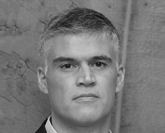
Gordon Center for Medical Imaging,
Massachusetts General Hospital
Harvard Medical School
Dr. Sepulcre is a Lab Director and Principal Investigator at the Gordon Center for Medical Imaging, Department of Radiology, Massachusetts General Hospital (MGH), and faculty member at Harvard Medical School.
After completing his M.D. and Ph.D. in Spain, he moved to Harvard University and MGH in 2008 to establish his neuroscience and neurodegenerative diseases research group. Prof. Sepulcre is known for his contributions to developing cutting-edge connectomic and neuroimaging-genetic approaches for investigating the brain network and biological underpinning of Alzheimer’s disease and other dementias.
Among funding institutions, his work is supported by the US National Institute of Health (NIH; National Institute on Aging and National Institute of Biomedical Imaging and Bioengineering) and the Alzheimer’s Association.
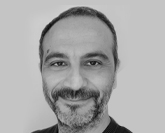
Institut Hospital del Mar d’Investigacions Mèdiques (IMIM), Barcelona
Centro Nacional de Investigaciones Cardiovasculares (CNIC)
I hold a PhD in Telecommunication Engineering and a Master's in Biomedical Engineering. My main field of research is the development of neuroimaging analytical techniques for the study of the brain. My interests are multidisciplinary my research has been performed in close collaboration with neurologists, psychiatrists, biologists, chemists, pharmacists, etc. Through the years, I have developed an extensive network of international collaborations both in academia and in the industry, with whom I frequently collaborate to jointly develop state-of-the-art technologies and biomarkers.
In the last decade, my research has been focused on studying the pathophysiological processes involved in the preclinical stages of Alzheimer’s disease (AD) to inform preventive interventions. Pathophysiological alterations with are specific to AD can already be detected many years before the onset of symptoms. This preclinical stage constitutes a window of opportunity for preventive interventions.
I have also been teaching courses on Medical Imaging at the public Pompeu Fabra University in the degrees of Biomedical Engineering and Human Biology. I have supervised 5 PhD I have also acted as supervisor in 3 postdoctoral researchers that have been awarded Juan de la Cierva fellowships (2 incorporación, 1 formación) and 1 Marie Skłodowska-Curie fellowship. I was awarded a Ramon y Cajal Fellowship in 2013 and, in 2019, received the I3 certificate of outstanding research trajectory by the Spanish Ministry of Science and Innovation.
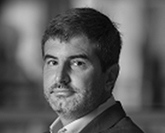
Sant Pau Hospital, Barcelona
I am a behavioral neurologist and a dementia expert. I am the director of the Memory Unit at the Hospital of Sant Pau (HSP) and the founding Alzheimer Down Unit Director at the Catalan Foundation for Down syndrome (DS), both in Barcelona, Spain. The Memory Unit of HSP is one of the leading centers in Europe in clinical, biomarker and translational research in Alzheimer disease (AD) and related dementias. The Alzheimer Down Unit has developed and implemented a pioneering population-based health plan to screen for AD in adults with DS. This health plan includes longitudinal clinical assessments and is associated with a comprehensive biomarker research program. This project, the Down Alzheimer Barcelona Neuroimaging Initiative (DABNI), is the largest single center cohort in the world of adults with Down syndrome with available multimodal biomarkers studies and includes plasma, CSF, MRI and PET studies, as well as polysomnography studies and brain donation.
My research interest is on biomarker research for the early diagnosis of neurodegenerative diseases and the study of the natural history of Alzheimer disease (AD). We have been the first group to establish the similarities between the natural history of autosomal dominant AD and DS associated AD (DSAD) and to establish DSAD as genetically determined AD. Another achievement has been the proposal of a novel biphasic model for the cortical macro and microstructural changes in preclinical AD due to amyloid-related inflammation, occurring both in the general population and autosomal dominant AD.
My expertise is recognized both nationally and internationally. I am the principal investigator of several competitive national and international research projects both in Europe and the US, and I have co-authored more than 220 peer-reviewed publications. I am an active member of several scientific committees and recipient of several awards as well as an elected member of several national and international societies, including the International Scientific Committee of the Jerome Lejeune Foundation (France), the Clinical Research Committee from the Trisomy 21 Research Society. I am the Chair of the Down Syndrome Professional Interest Area (Alzheimer’s Association, USA) and the past Chair of the Behavioral Neurology and Dementia Study Group of the Spanish Neurological Society.

Hospital Santa Creu i Sant Pau, Barcelona
CIBERNED
Dr. Alberto Lleó is director of the Memory Unit of the Neurology Service of the Hospital de la Santa Creu i Sant Pau.
After graduating, in Medicine and Surgery, at the University of Barcelona in 1995, he completed a specialization in Neurology at the Hospital de la Santa Creu i Sant Pau in 2000. Two years later, he obtained his doctorate in Medicine from the University of Barcelona. He continued his training with a basic research and clinical stay focused on memory and movement disorders at Massachusetts General Hospital (2002-2004), where he combined clinical assignments with research projects.
During his professional career, Dr. Alberto Lleó has combined healthcare work with translational research projects in the field of dementias, and specifically in its molecular aspects and in the development of biomarkers. His contributions include the discovery of new genetic alterations in Alzheimer's disease, the study of the functioning of the gamma-secretase complex, and the evaluation of new biochemical markers in Alzheimer's disease and frontotemporal dementia.
Today, Dr. Alberto Lleó directs a translational group, leads several projects financed by public and private agencies and maintains stable collaborations with numerous national and international groups. He is also coordinator of the Alzheimer program at CIBERNED (Center for Biomedical Research on the Net in neurodegenerative diseases). He is the author of a patent on synaptic markers, 20 book chapters and of more than 250 publications in international journals. He serves in the editorial board of Neurology and Brain Communications.

Instituto de Investigación Biomédica de Málaga
Plataforma en Nanomedicina (IBIMA Plataforma BIONAND)
Pedro J. Serrano Castro is Deputy Scientific Director of IBIMA BIONAND Platform and Principal Investigator / Responsible at the Institute (Group C01 "Neuroimmunology and Neuroinflammation"). Head of the Neurology Service and Director of the Neurosciences Unit of the Regional University Hospital of Malaga. Associate Professor of Medicine at the Faculty of Medicine of the University of Malaga. PI and Coordinator of the Andalusian Network for Clinical and Translational Research in Neurology (Neuro-RECA), financed by the Consejería de Salud y Familias de la Junta de Andalucía (RIC-0111-2019).
Participates in two European research networks: NEURO -MIG – European Network on Brain Malformations (COST Action CA16118) and Building Intrapartum Research Through Health (COST Action IS1405). He has led six research projects financed by public or private entities such as IP and has been a collaborator in 5 other projects. He is the author of 124 publications included in JCR (75 of them, led) and 40 non-periodical publications (8 books as editor, 32 book chapters). In 2015, he received the "Epilepsy" Scientific Award from the Spanish Society of Neurology in recognition of his research career in this field. In 2022, he received the research award from the Andalusian Society of Neurology. Since July 2019, he belongs to the Advisory Committee of the General Secretary for Research of the Ministry of Health of the Junta de Andalucía.

Alzheimercenter Amsterdam UMC
Lund University
Rik Ossenkoppele is an associate professor in Translational Neuroscience and PI at the Alzheimercenter Amsterdam of the Amsterdam UMC and at Lund University in Sweden. He works on the intersection between neuroimaging, biomarkers and cognition in Alzheimer’s disease. His main motivation is to contribute to improving the diagnostic/prognostic work-up (short-term goal) and curing AD (long-term goal). Dr. Ossenkoppele received several prestigious prices (e.g., the European Grand Prix for Research on the Foundation of Alzheimer’s Disease [2019], the Young Investigator Research award from Alzheimer Nederland [2020] and the Queen Silvia Research Prize [2021]) and research grant (e.g., an ERC starting grant and various dementia research grants).
He is an editorial board member for Alzheimer’s Research & Therapy and for the European Journal of Nuclear Medicine and Molecular Imaging, program committee member for several AD and FTD imaging conferences and Chair for the Atypical AD Professional Interest Areas of the Alzheimer Association.
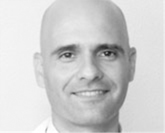
Fundación CIEN
Dr. Sánchez-Juan is the Scientific Director of the Research Center for Neurological Diseases Foundation (CIEN) in Madrid.
Neurologist expert in dementias. Until August 2021 he has directed the Cognitive Impairment Unit of the Marqués de Valdecilla University Hospital, Santander, where he has also held the scientific direction of the Valdecilla Biobank. He is co-IP of CIBERNED and a member of the executive committee of the Spanish consortium of genetics in dementias, in addition to having multiple international and national publications that accumulate more than 8700 citations.
He completed his specialty at the Marqués de Valdecilla University Hospital. After his residency, he was awarded the Wenceslao López Albo research grant. He spent a year as a researcher in Edinburgh at the National Creutzfeldt Jakob Surveillance Unit in the United Kingdom. Subsequently, he graduated in Genetic Epidemiology at the Erasmus MC University (Rotterdam, The Netherlands), where he did his MSc and PhD. While in Rotterdam, he served as Prion Disease Surveillance Coordinator in the Netherlands and gained valuable experience in the field of epidemiology working on the prestigious Rotterdam Study cohort. In 2011 he completed his clinical training as an expert in dementia and behavioral neurology at The Memory and Aging Center at UCSF in San Francisco. Dr. Sánchez-Juan has been the founder and responsible until August 2021 of the Cognitive Impairment Unit at HUMV, as well as scientific director of the Valdecilla Biobank. Since August 2021 he is the scientific director of the CIEN Foundation and the co-principal investigator of CIBERNED. He is also a member of the executive committee of the Spanish Genetic Consortium of Dementias.
Dr. Sanchez-Juan is the author of more than 150 international publications indexed in Medline. Dr. Sánchez-Juan's main scientific interest is neurodegenerative diseases, particularly prion diseases and Alzheimer's disease. His publications include the first authorship in two genome-wide association studies on prion disease. He is also the first or principal author of some seminal and highly cited papers in the field of prion disease biomarkers and is the lead author of the current clinical diagnostic criteria for these diseases.

Eli Lilly and Company
Medical Affairs – Associate Vice President
International Business Unit
Neuroscience Therapeutic Area Leader
As a neurologist mentored by Pr Bruno Dubois who transformed the concept of Alzheimer’s disease (AD) from that of an unspecific dementia to a precise clinico-biological entity I have been at the forefront of the clinical AD research field for the last 15 years.
I participated to more than 30 clinical trials and was also part of a brain data science lab (AramisLab) in which I contributed to neurodegenerative diseases digital modelling. I published more than 100 original articles in the field of AD and related disorders focusing on timely and accurate diagnosis of AD and new therapeutic options.
In 2018 I was awarded the French Fondation Alzheimer prize for my clinical research. Since November 2021, I lead the medical affairs neurology team in the international business unit of Eli Lilly and company working to bridge the gap between clinical development of innovative treatments and their implementation in clinical practice.
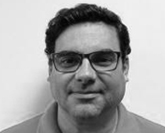
Agustín Ruiz
Fundaciò ACE
Dr. Agustin Ruiz Laza is currently the Director of Research of Fundaciò ACE. Barcelona Alzheimer Treatment & Research Center (Barcelona, Spain). Born in Utrera, Sevilla, Spain (August 10th, 1969). He graduated in Medicine and Surgery and has a Ph.D. in Molecular and Cellular Biology from the University of Seville. For eight year he conducted research work at the Department of Medical Genetics and Prenatal Diagnosis in the Hospital Universitario Virgen del Rocío, Sevilla (1993-2001). There he received the Extraordinary Doctoral Award at the University of Seville (2000 ) for his thesis. He then co-promoted and co-founded four biotech companies receiving awards for best 50K Business Idea and Best Business Plan in the field of Biotechnology, Instituto Internacional San Telmo. The result of this activity with their partners received the award for business excellence in the area of Innovation of the Government of Andalusia (2008).
Agustin Ruiz has published 144 articles in indexed journals such as JAMA, Lancet Neurol., J. Exp. Med., Nature, Nature series, among others. He is co- author of several patents related to the molecular diagnosis of complex diseases and bioinformatics tools for genomic research. He has received funding for >35 projects granted by regional, national and European competitive agencies. He participated in the writing of several chapters of scientific books and reviews in national magazines.
His scientific interest is focused on the application of genomic technologies in medicine. He has participated in the identification of numerous genetic factors linked to different diseases and in the identification of 14 genes associated with Alzheimer's disease. Ruiz is the co-founder of the Dementia Genetics Spanish Consortium (DEGESCO). Currently, he is coordinating the EU Innovative Medicine Initiative (IMI) ADAPTED project (www.imi-adapted.eu) and the GR@ACE project conducting GWAS using samples from 14000 Spanish individuals.
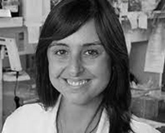
Florencia Iulita
Altoida. Head of Medical Strategy and Operations
Dr. Iulita leads Medical Affairs activities at Altoida, focused on the development of digital biomarkers for neurodegenerative disorders such as Alzheimer’s disease. She is a Neuroscientist and Molecular Biologist by training, with more than 12 years of global leadership developing and directing preclinical & clinical research in Alzheimer’s disease and Down syndrome. She started her scientific career in Buenos Aires, Argentina, obtaining her Ph.D. at McGill University, Canada, and completing postdoctoral work at Université de Montreal. Before joining Altoida, she led several research efforts on novel approaches for biomarker discovery using extracellular vesicles at the Sant Pau Memory Unit in Barcelona. She also held roles as Scientific Advisor for non-profit organizations and digital health startups. She is a member of several international workgroups on Alzheimer’s disease and Down syndrome.
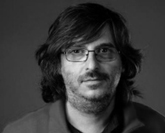
Gonzalo de Polavieja
Champalimaud Foundation
Dr. Gonzalo G. de Polavieja did a D.Phil. in Physical Sciences as 'Marie Curie' fellow (Oxford, UK) working in quantum geometric phases, a postdoc in Neurobiology as 'Welcome Trust' fellow in Mathematical Biology at the Laughlin Lab (Cambridge, UK). He was then Junior PI as 'Ramon y Cajal' fellow (Theoretical Physics, UAM), tenured at Cajal Institute (CSIC, Spain). In 2014 he moved to the Champalimaud Foundation in Lisbon to develop AI systems useful in Neuroscience and in other fields.
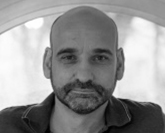
Jean-Charles Lambert
Institut Pasteur of Lille. INSERM
Jean-Charles Lambert is Inserm research director since 2008 and published 228 articles in peer-reviewed journals. He defended his Ph. D in Genetics and Neurosciences at the University of Lille I, (1999, France) and then he moved to the University of Birmingham (UK, Marie Curie fellowship). In 2006, he became the leader of the Inserm team “Search for molecular determinants of Alzheimer’s disease and related disorders” at the Pasteur Institute of Lille. Dr. Lambert coordinates the EADB (European Alzheimer & Dementia Biobank) consortium involving 18 European countries, which is currently the strongest GWAS effort wordwide.
He is also co-PI of the ADES European consortium involving 5 European Countries with the objective to analyzing whole exome sequencing data from the current largest dataset available. These combinations of forces have recently led to major publications, including the report of 75 determinants of Alzheimer's disease, 42 of which were novel. The projects developed in his team necessitate integrated approaches including the development of epidemiological approaches, high-throughput genomic methodologies (genotyping, sequencing and transcriptomics) and an essential bio-informatics backbone. Furthermore, this also implies the development of pertinent in vitro and in vivo experimental models from the most interesting genetic determinants characterized.

José Miguel Laínez
Presidente de la SEN
Dr. José Miguel Láinez Andrés is President of the Board of Directors of the Spanish Society of Neurology (SEN), a scientific society made up of more than 3,700 members, including the majority of Spanish neurologists and other health professionals interested in neurology.
He is head of the Neurology Service of the Hospital Clínico Universitario de Valencia, professor of Neurology at the Catholic University of Valencia and Academic Number of the Royal Academy of Medicine and Related Sciences of the Valencian Community.
He has held numerous positions in the SEN: Vice President (2015-2019), Secretary (1995-1996) and Deputy Secretary (1993-1994) of its Board of Directors; Coordinator of the Headache Study Group, Secretary of the Cerebrovascular Diseases Study Group, representative of the SEN at the EFNS and member of the Ad-Hoc Committee on Neurodependency and the Scientific Committee. He has also been a member of the Board of Directors of the Valencian Society of Neurology, President of the European Headache Federation and member of the Executive Committee of the International Headache Society, where he serves on various committees, being founder and coordinator of the Spanish Section; President of the Organizing Committees of the 9th and 17th Congresses of the International Headache Society and the 8th Congress of the European Headache Federation.
He belongs to multiple national and international scientific societies, such as the American Academy of Neurology, the American Neurological Association, and the American Headache Society, of which he is a Fellow. He is an Honorary Member of the Colombian and Chilean Neurology Societies, the Latin American Headache Association, and the Società Italiana per lo Studio delle Cefalee.
He has published hundreds of papers in specialized journals and books, is the author or editor of multiple books and has presented numerous papers and communications at national and international congresses and meetings. He has served on the Editorial Committees of various specialty journals, is a reviewer for multiple national and international journals and has been senior editor of the Journal of Headache and Pain.

Michael Schöll
University of Gothenburg/University College London
Michael Schöll, PhD, is a Professor in Molecular Medicine with focus on neuroimaging at the University of Gothenburg, a Principal Research Fellow at University College London and a member of the Young Academy of Sweden.
As a clinical neuroscientist, he is passionate about bringing biomarker research into clinical use. His group employs neuroimaging, bodily-fluid-derived and digital biomarkers to facilitate the reliable diagnosis of early neurodegenerative diseases with a strong focus on Alzheimer’s disease.
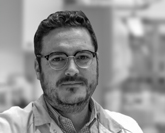
Nicholas Ashton
University of Gothenburg
Dr. Ashton is an Assistant Professor of Neurochemistry at the Department of Psychiatry and Neurochemistry at the University Gothenburg in the group of Professor’s Henrik Zetterberg and Kaj Blennow. He also holds a senior researcher position at the department of Old Age Psychiatry, King’s College London, and Stavanger University in Norway. He received my PhD in 2017 from King’s College London in the group of Sir Professor Simon Lovestone.
Dr. Ashton has have more than a decade of experience in biofluid analysis and assay development for Alzheimer’s disease, which ranges from discovery mass spectrometry methods to ultra-sensitive immunoassays. Recently this has produced ultra-sensitive single molecular array (Simoa) assays for phosphorylated tau in blood, which are now widely used in research settings, therapeutics trials and being validated for clinical use. Current research now focuses on understanding different tau and synaptic forms in biofluids and how they may contribute to the knowledge of disease pathogenesis and ultimately clinical use. He has published >200 original research articles in field of fluid biomarkers and in 2021, he received the Queen of Sweden Prize to a Young Alzheimer Researcher for his contribution dementia research. In 2022 received the Viola Bergqvist award for mentorship.
Dr. Ashton was first introduced to Dementia research through is Masters is clinical Neuroscience in 2010 – where the challenge of diagnosing Brain disorders in novel ways was presented in a an exciting and engaging way. Today, these novel techniques and discoveries are close to being implemented as fundamental tools in the clinical investigation of Dementia patients.
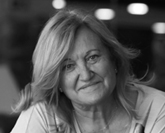
Joaquina García del Moral (Kina)
Panel de Expertos de Personas con Alzheimer (PEPA)
A Joaquina García del Moral (Kina) con tan solo 59 años le diagnosticaron Alzheimer. Kina es una de los 12 pacientes de Córdoba, 100 en España y 3.500 pacientes de todo el mundo que han participado en el ensayo clínico del nuevo y controvertido fármaco contra el Alzheimer: aducanumab. El medicamento, de la biotecnológica Biogen, fue autorizado por las Agencia del Medicamento estadounidense (FDA) y se espera que lo haga también la Agencia Europea del Medicamento (EMA).
Aducanumab, Aduhelm en su nombre comercial, busca frenar el deterioro cognitivo provocado por la enfermedad de Alzheimer y es un anticuerpo que reduce las placas de amiloide que se acumulan en estos pacientes y que se relacionan con este deterioro. Kina tiene mucho que decir. Ella lleva años inyectándose este medicamento.
Hace poco le confirmaron que lo que a ella le administraban no era placebo, era la medicación en dosis alta. Pero ella afirma que lo notaba, que su vida ha vuelto a ser como antes del diagnóstico y cree que eso solo podía ser por el aducanumab.
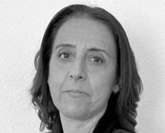
Mª Dolores Almagro Cabrera
Presidenta de CEAFA
Mariló empezó su labor como voluntaria en el mundo Alzheimer cuando su madre fue diagnosticada de esta enfermedad en Motril. Ante la falta de recursos en esa ciudad, en el año 2010 fundó la Asociación Afacontigo Alzheimer de Motril. Desde entonces entró a formar parte en la Federación Granadina de Alzheimer, de la que es presidenta desde 2014. Actualmente también es Tesorera de la Confederación Andaluza de Alzheimer y Otras Demencias.
En el año 2016 la nueva presidenta entró a formar parte de la Junta de Gobierno de CEAFA como vocal, y ya en 2019 ocupó el cargo de vicepresidenta.
Durante su mandato, la Junta de Gobierno tiene como meta continuar trabajando para poner el Alzheimer en la agenda política, buscando el necesario compromiso social para llevar a cabo acciones que ayuden a cambiar el estigma asociado a la enfermedad.

Maria Carmona
Médico Adjunto Neurología en Hospital de la Santa Creu i Sant Pau
I am a cognitive and behavioral neurologist, currently serving as faculty in the Neurology Department at Hospital de la Santa Creu i Sant Pau in Barcelona, Spain.
I obtained my Medical Degree at the University of Navarra and specialized in Clinical Neurology at the Clínica Universidad de Navarra, in Spain. Following that, I worked as a sub-investigator of clinical trials for Alzheimer's disease at the Memory Unit of the Hospital Sant Pau for several years. Currently, I am engaged in clinical and research activities at the same institution.
My primary research focus has been on studying neuroimaging and biochemical biomarkers of Alzheimer's disease and cerebral amyloid angiopathy, both in the general population and in individuals with Down syndrome. This formed the basis of my Doctoral Thesis, which received a Special Award for Doctoral Studies in Neurosciences from the University Autònoma de Barcelona. Since 2014, I have also worked as a clinical Neurologist at the Catalan Foundation for Down syndrome. In this setting, we have implemented a health plan and a biomarker research program for adults with Down syndrome.
My studies have made significant contributions to the field of biomarkers, resulting in more than 200 presentations at national and international conferences and over 60 publications in high-impact journals. I am the principal investigator of several competitive projects in DS that aim to advance clinical, social, and translational aspects. As a Neurologist, I have acquired extensive clinical expertise in diagnosing and treating patients with cognitive problems, both with and without epilepsy, in the general population as well as in individuals with Down syndrome. Over the years, I have furthered my knowledge and experience as a researcher, particularly in research methodologies and the development of translational studies. Since 2020, I have been part of the Executive Board of the T21 Research Society by co-chairing the Science & Society Committee.

Mercè Boada Rovira
MD, PhD, Prof. Directora Médica de Ace Alzheimer Center Barcelona
Neurologist, Doctor of Medicine from the University of Barcelona. She is co-founder with Lluís Tàrraga of Fundaciò ACE, (currently, Ace Alzheimer Center Barcelona) and medical director.
Mercè Boada is a distinguished professor at the Universitat Internacional de Catalunya and a member of the Executive Committee of the EADC (European Alzheimer's Disease Consortium) and principal investigator of the Ace Group of CIBERNED (Biomedical Research Center for Neurodegenerative Diseases Network, Carlos III Institute, Madrid).
She completed her professional training at the Vall d'Hebrón University Hospital Neurology Service in Barcelona. She held the position of Clinical Chief, being responsible for the dementia research area of the Vall d'Hebrón Research Institute. She was secretary of the Generalitat de Catalunya, technician of the Consell Assessor in Psychogeriatrics of the Servei Català de la Salut that elaborated the “Pla de Demències: polítiques específiques per a la detecció i l’atenció de trastorns cognitius i de la conducta” (1998 ).
At European level, she led the MOPEAD project (Models of Patient Engagement for Alzheimer's Disease), co-led the ADAPTED project (Alzheimer's Disease Apolipoprotein Pathology for Treatment Elucidation and Development) with Dr. Agustín Ruíz, both funded by the European Community through IMI (Innovative Medicines Initiative) and EFPIA (European Federation of Pharmaceutical Industries and Associations).
She has also participated as a researcher in the projects EPAD (European Prevention of Alzheimer's Dementia Consortium), AMYPAD (Amyloid Imaging to Prevent Alzheimer's Disease), PreDADQoL (Ethical and legal framework for Predictive Diagnosis of Alzheimer's Disease: Quality of Life of individuals at risk and their close others) and PreTAD (The Predictive Turn in Alzheimer's Disease: Ethical, Clinical, Linguistic, and Legal Aspects).
She is the principal investigator and co-investigator of various genetic projects, GR@ACE (Genomic Research at ACE), of the FACEHBI cohort (Fundaciò ACE Healthy Brain Initiative), and NORFACE (Neuro-ophthalmology Research at Fundaciò ACE), and TARTAGLIA.
At the institutional level, he has directed more than 135 international clinical trials on Alzheimer's disease and other dementias. She has served as a consultant and collaborator with the pharmaceutical industry in different studies on Alzheimer's disease.
She has published 557 scientific articles (Research Gate; h-index: 67), 37 book chapters and 12 popular medical books.
At the ethical-social research level, she is the co-editor of the SITGES Document 2005 and 2009 of the Spanish Society of Neurology.
Member of the Board of Trustees of the Fundació Catalunya La Pedrera and promoter of its REMS program (Reforçar i Estimular la Memòria i la Salut).
She has been awarded the Professional Excellence Award by the Consell de Col-legi de Metges de Catalunya (2008), ACRA Award (Catalan Association of Care Resources) for professional career 2015, Josep Trueta Medal for health merit (2012) and received the Alzheimer Award from the Spanish Society of Neurology in 2021.
She was awarded in 2022 with the Fenin Award for Healthcare Technological Innovation And in 2023, she also received the Premi Muncunill award or Honor. The Generalitat de Catalunya awarded her the Creu de Sant Jordi in 2016, for her trajectory in Alzheimer's disease, one of the highest recognitions of the Generalitat de Catalunya. Dr. Boada has been awarded the prestigious honorary award at the Muncunill Awards for Innovation on May 2023.

Jon Infante
Hospital Universitario Marqués de Valdecilla (IDIVAL), Santander (CIBERNED)
Degree in Medicine from the University of Navarra in 1996. Medical specialist in Neurology since 2001 and currently Head of Section of the Neurology Service of the University Hospital Marqués de Valdecilla in Santander. Responsible for the area of movement disorders and the Reference Unit (CSUR) of Ataxias and hereditary spastic Paraplegias in that center. Professor of Medicine at the University of Cantabria since 2020. Principal investigator of the IDIVAL neurodegenerative diseases group and the CIBERNED group (CB/06/05/0037).
Dr. Infante's current research interests include the study of biomarkers of LRRK2 G2019S-associated Parkinson's disease, movement disorders, genetic epidemiology of neurodegenerative conditions such as Parkinson's disease and Alzheimer's disease, as well as natural history and clinical-genetic correlations in inherited cerebellar ataxias. Dr. Infante is a member of the Spanish Society of Neurology, the International Parkinson and Movement Disorder Society and the Ataxia Study Group (www.ataxia-study-group.net/). Author of more than 160 scientific publications (h-34 index) with participation in 25 research projects.

Pedro Gómez
MRC Laboratory of Molecular Biology, Cambridge (UK)
Department of Physiology, Development and Neurobiology (University of Cambridge)
Departamento de Biología Celular, Universidad de Sevilla
Dr. Gómez developed his PhD in computational biology at Dr. L.M. Escudero lab in the University of Seville/Institute of Biomedicine of Seville. During his PhD, he participated in various investigations in cell biology and neurodegenerative diseases, which led to notable research accomplishments. One of these achievements was the first authorship of a research article published in Nature Comms. announcing the discovery of the “Scutoids”, a significant milestone that garnered global attention and received extensive coverage in popular broadcasts and newspapers worldwide. In recognition of his contributions, Dr. Gómez received, among other recognitions, the Youth National Award in Science and Technology in 2019.
After his PhD, Dr. Gómez joined Dr. Albert Cardona group at the MRC LMB of Cambridge funded by a Margarita Salas fellowship. Dr. Cardona lab is renowned for its pioneering works in the field of connectomics – notably they have recently mapped all the neuronal connections in the whole brain of the Drosophila larva. Building upon this remarkable research foundation, Dr. Gómez focuses his postdoctoral research on the connectome analysis of Drosophila larva brain affected by Parkinson’s disease.
In summary, Dr. Gómez's research has mainly aligned with basic research in cell biology, by applying the most advanced tools in image analysis and modelling. However, his research scope extends beyond the cell biology field. Through active collaborations with clinical research groups and by leveraging his computational expertise, he sought to gain insights into neurological diseases such as Alzheimer's, Parkinson's, and ALS.

Miquel Vila
Group leader of the Neurodegenerative Diseases Research Group at the Vall d’Hebron Research Institute (Barcelona, Spain),
Miquel Vila is the group leader of the Neurodegenerative Diseases Research Group at the Vall d’Hebron Research Institute (Barcelona, Spain), devoted to the elucidation of the molecular mechanisms of neurodegeneration in Parkinson’s disease (PD).
Dr. Vila received his medical degree from the University of Barcelona Medical School (Barcelona, Spain) and then moved to the laboratory of Experimental Neurology and Therapeutics, INSERM U289 (Prof. Yves Agid) at the Salpêtrière Hospital in Paris (France), where he obtained his Master degree (D.E.A.) and Ph.D. in Neuroscience from the University of Paris VI (Pierre et Marie Curie), under the supervision of Dr. Etienne Hirsch. His Ph.D. work was devoted to the study of the functional consequences of dopaminergic neurodegeneration on the functioning of the basal ganglia. From 1998 to 2001, he worked as a postdoctoral researcher at the laboratory of Dr. Serge Przedborski at the Department of Neurology, Movement Disorders Division, at Columbia University (New York, USA), focusing on the molecular mechanisms of neuronal death in PD. To continue his work, he obtained in 2001 a tenure-track position as an Assistant Professor of Neurology at Columbia University.
In 2006, he moved back to Barcelona as a Professor at ICREA (Catalan Institution for Research and Advances Studies) to develop a new research group on neurodegeneration at the Vall d’Hebron Research Institute, thanks to the support of a 1.2M€ European Commission’s Marie Curie Excellence Grants program. The group is now part of the Center for Networked Biomedical Research on Neurodegenerative Diseases (CIBERNED) and of the recently established Aligning Science Across Parkinson’s Collaborative Research Network (ASAP-CRN).
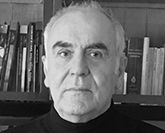
Javier DeFelipe
Research Professor at the Instituto Cajal (CSIC, Spain)
His particular expertise lies in the correlation of electron microscopy data with the synaptic connectivity of neurons previously identified using functional markers, or by intracellular labelling. Another of his principal interest is the analysis of alterations of cortical circuits in epilepsy and Alzheimer’s disease and in the study of the history of cortical organization and function. Furthermore, his laboratory is involved in the development of a variety of software tools to classify neuronal cell types and to examine the anatomical design (neuronal morphology and synaptic organization) of brain circuits. A particularly important event that occurred in his scientific career was in 2009, when his group was awarded the Cajal Blue Brain Project (CBBP) and since then he has been serving as the director of the CBBP.
This project has made it possible to have a multidisciplinary team of more than 50 researchers (anatomists, physiologists mathematicians and computer scientists) and to create the Laboratorio Cajal de Circuitos Corticales, (CSIC/Universidad Politécnica Madrid). As a result of this project, several tools and new computational methods have been developed that represent an important technological contribution https://cajalbbp.es/.
These tools and methods include intracellular injection techniques, the integration and exploitation of microanatomical data and the development of a new FIB/SEM technology (double beam electron microscopy), which allows the ultrastructural study of large volumes of tissue in a semi-automatic way — essential technology for deciphering the synaptome. Finally, he was the Spanish Project leader for the NASA Neurolab project (1998) and one of the 13 founders of the Human Brain Project (HBP: https://doi.org/10.1016/j.procs.2011.12.015 ), serving as the Scientific leader of Subproject SP1 (Mouse Brain Organization, from October 2013 to March 2020) and member of the Science and Infrastructure Board of the HBP (2013 – present).
He is also fascinated by the link between the study of the brain and art and he has been involved in organizing and curating numerous exhibitions around the world. DeFelipe has written several articles, chapters and books on both this subject and the influence of Santiago Ramón y Cajal in modern neuroscience. A full-length CV can be found here

Eduardo Soriano
Leader of the Neural Development and Regeneration laboratory at the Institute of Neurosciences and University of Barcelona
Eduardo Soriano received his PhD in Biology from the University of Barcelona (UB) in 1986 (Supervisor, A Fairén). After post-doctoral training at the Universities of Lausanne and Frankfurt (H van der Loos and M Frotscher), ES was appointed Associate Professor at the UB in 1989, and promoted to Full Professor in 1995. ES has been Visiting Professor at the University of Fribourg (M Frotscher), the INSERM U-106 (C Sotelo), and Bristol-Myers Squibb Pharma (M Barbacid).
ES has been awarded by the "Rey Jaime I Research Award" (2000), “Francisco Cobos Biomedical Research Award” (2001), “Distinció de Recerca-Generalitat” (2005), and ICREA Academia Award (2014). ES has published over 300 scientific papers with 20.800 citations (H Index: 85). ES leads the Neural Development and Regeneration laboratory at the Institute of Neurosciences and University of Barcelona and is interested in the molecular mechanisms regulating adult plasticity and how the potentiation of these mechanisms delays neurodegenerative disease pathogenesis.
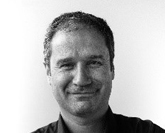
David Otaegui
Leader of the Multiple Sclerosis Group at the Biodonostia Health Research Institute
I graduated in Biochemistry in 1999 and obtained my PhD in Genetics in 2007. Since 2010 I lead the multiple sclerosis group at the Biodonostia Institute. I start studying DNA looking for susceptibility SNPS and that leads me to study how these SNPS can affect RNA transcription. Since then, I am interested in understanding how the transcriptome is regulated, with special interest in ncRNAs such as microRNA and more recently Circular RNA, from a systems biology perspective. Trying to understand how microRNA can make its effect in other cells we opened our research to the field of extracellular vesicles studying them as biomarkers and as vehicles to drive microRNA to the central nervous system.
Our research has focused on immune cells, so we are studying how the immune system ages, opening a line of research in immunosenescence and how it can affect inflammation and immune response in immune and neurodegenerative disorders. In the same line, we are studying, in an international consortium, the role of the microbiota in multiple sclerosis and other neurodegenerative diseases and possible ways to modulate it.

Diego Clemente
Group leader of the neuroimmuno-Repair Group at the Hospital Nacional de Parapléjicos (Toledo, Spain)
Dr Clemente graduated in Biology (1998) and obtained his Ph.D. in Neurosciences (2003) at the University of Salamanca (Spain). Since 2015 he leads the Neuroimmuno-Repair Group at the Hospital Nacional de Parapléjicos, in Toledo (Spain).
His main research line is the study of immune regulatory mechanisms in the context of demyelinating pathologies, particularly in multiple sclerosis (MS). Specifically, his group is specialized in the study of myeloid-derived suppressor cells (MDSCs) in MS from different perspectives: i) biomarker to predict severity and anticipate response and efficacy to disease-modifying drugs, ii) biomarker of spontaneous oligodendrocyte precursor mobilization and remyelination capacity for better classification of patients with high and low regenerative capacity, iii) therapeutic elements for a future immunosuppressive and pro-remyelinating therapy.
Dr. Clemente's group has described for the first time the presence of MDSCs associated with demyelinating lesions in the brain of MS patients, as well as their predictive capacity for spontaneous relapse recovery. Recently, his group has started the study of extracellular vesicle production by MDSCs, as well as their potential utility as a future immunosuppressive and pro-regenerative therapy for highly active forms of MS. He is also analyzing the effect of graphene oxide as a biocompatible material for the ex vivo potentiation of MDSCs prior to their use as a cell-based therapy. The highly translational orientation of his research has led him to sign several collaborative research agreements with pharmaceutical companies such as Novartis, Bristol Myers Squibb or Merck, with whom he is analyzing the immunomodulatory and tolerogenic effect over myeloid cells of the BTK inhibitor evobrutinib, a drug currently in phase III clinical trial for MS.
Dr. Clemente is a member of the Steering Committee of the Spanish Society of Neurosciences and a former member of the Steering Committee of the Spanish Glial Network. His group is a main partner of the Spanish MS network and was an associate partner of the MSCA-ITN "nEUROinflammation" awarded by the EU.

Coordinator of CIBER knowledge transfer office
MsC in Biology (biochemistry and molecular biology) from the UAM, master's degree in biotechnology (ALITER school) and advanced training in innovation management and technology policy (DEGIN interuniversity programme UAM-UCM-UPM) and RTTP.
More than 20 years of experience in R&D&I management and knowledge transfer. She began her professional career in the technology portfolio of Genoma España, analysing projects for financial support at the seed capital stage. She was deputy director of IDIVAL (in Cantabria, 2006-2010). At that time, together with IIS La Fe in Valencia, she also coordinated the creation of REGIC. From 2010 to 2014 she was head of projects and technology transfer at CNIC. She currently coordinates CIBER’s KTO. She has also carried out teaching and project evaluation activities, including co-directing three UIMP summer courses on knowledge transfer in biomedicine, and has been a speaker at another two. She has also participated as a collaborator in various master's degrees and courses (UNED-ISCIII, Genoma España, IE, UC, etc.). In addition, she has been and is an evaluator in different calls (FIPSE, ISCIII, MINECO, AECC, etc.). She is a member of the executive committee of RedTransfer and of the scientific advisory committee of the Gadea Foundation for Science.

Responsible for the CIBER technological development platform
Biologist and Doctor in Immunology from the University of Granada (2008), and Master in R&D&I Management from the Polytechnic University of Valencia. Head of the CIBER Technological Development Platform. In his early years as a researcher, he worked at INSERM (France) and later at the Reina Sofia University Hospital in Cordoba where he did his doctoral studies.
He later made the leap to research management, supporting a network of biomedicine groups at the University of Extremadura thanks to a Banco Santander training programme and later, from 2009 until this year, through the rare diseases area of the CIBERER (CIBERER). As a manager, he has experience in coordinating research networks, knowledge transfer and innovation, project management and R&D&I programmes. Since 2013, in addition to supporting the CIBERER's Scientific Management in implementing the CIBERER's strategic plan, he has been responsible for technology transfer activities in the CIBERER's rare diseases area and for supporting the development of therapeutic projects. Since June, 2022 he has been responsible for the CIBER technological development platform, which is the CIBER initiative in charge of supporting the valorisation of translational programmes within the consortium.

Achucarro Basque Center for Neuroscience
M Estrella Fernández de Sevilla is a Doctor of Neuroscience from the Autonomous University of Madrid.
She has a degree in Biochemistry and a Master in Physiology and Neuroscience from the University of Seville. During these years she joined the Department of Physiology, University of Seville, with Dra. Sara Morcuende to study the role of oculomotor neurons in amyotrophic lateral sclerosis in SOD1 transgenic mice. She also completed short research stays at the University of Lodz (Poland) and the Sheffield Institute for Translational Neuroscience (United Kingdom).
After this period, she started working in the laboratory of Dr Ignacio Torres Aleman at the Instituto Cajal, studying the role of IGF-I through orexin neurons in relation to stress, but also collaborating in several other lines of research such as metabolism, neurodegeneration, exercise and fasting. During these years she has published several scientific papers and a patent. In addition, last year she spent a research stay at the Neurocentre Magendie of the University of Bordeaux (France) in the laboratory of Dr Marsicano.
The work presented at this congress on the fact that part of the anxiolytic effect of IGF-I is exerted by regulating orexin neurons in the hypothalamus was published in Molecular Psychiatry in 2022.
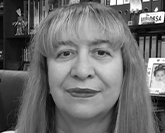
Group leader of the Alzheimer’s Disease Research Group ‘NeuroAD’ at the Dept. Cell Biology, Genetics and Physiology, Faculty of Sciences. University of Malaga (Spain). IBIMA-Plataforma Bionand. CIBERNED
Antonia Gutierrez graduated in Biology (1987) and received her PhD in Biological Sciences (1991) from the University of Málaga. After several years of postdoctoral scientific specialization in the United States, she moved back to this University with a contract of the Ministry of Education and Science and she was soon appointed as Associate Professor of Cell Biology and since 2011 as Full Professor. Her research career has focused on neuroscience in the field of aging and neurodegeneration. She directs a basic-traslational research group and her work aims to: 1) understand the molecular and cellular mechanisms involved in neurodegenerative processes with special focus on microglial and astroglial dysfunctional responses; 2) identify potential biomarkers of disease progression, and 3) study efficacy of new therapeutic treatments at preclinical level.
Her group develops an integrative approach encompassing research with novel and established transgenic animal models and post mortem human tissue and primary utilizes immunohistology and state-of-the-art light and electron microscopy combined with image analysis methods. Author of more than 100 original articles in the field of neuroscience and Alzheimer’s disease and lead research projects funded by public and private agencies, including international pharmaceutical companies. Her group has stable collaborations with several national and international research groups.
She is Principal Investigator of the Center for Networked Biomedical Research on Neurodegenerative Diseases (CIBERNED), the Institute for Biomedical Research in Malaga (IBIMA-Plataforma Bionand), and of the recently stablished Andalusian Network for Clinical and Translational Research in Neurology (Neuro-RECA). Currently she is the Head of the Department of Cell Biology, Genetics and Physiology at Malaga University. She serves as a member of review panels for national and international research agencies.
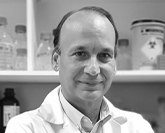
Director of the Movement Disorders Unit at Neurology Department, Virgen del Rocío University Hospital,
Pablo Mir is the Director of the Movement Disorders Unit at Neurology Department, Virgen del Rocío University Hospital, Associate Professor at the University of Seville (Medicine Department) and Principal Investigator at the Movement Disorders Research Group, Institute of Biomedicine of Seville (IBIS), an internationally recognized research group within the field of Parkinson’s disease (PD) and other movement disorders. The group led by Pablo Mir holds the status of “consolidated” in the Neuroscience Research Program of IBIS and it is integrated into the Plan Andaluz de de Investigación y Desarrollo (PAIDI) and Centro de investigación Biomédica en Red en enfermedades neurodegenerativas (CIBERNED). Pablo Mir is also an active member of the European Neuroscience Institute Network (ENI-NET).
The Movement Disorders Unit at Neurology Department, Virgen del Rocío University Hospital lead by Pablo Mir is a reference unit for rare diseases related to movement disorders included in the national network of Centers, Services and Reference Units (CSUR 53), and international reference center as part of the European Reference Network for Rare Neurological Diseases (ERN-RND) and a Medical-Surgical Unit for Movement Disorders accredited by the Spanish Society of Neurology (SEN).
The main goals of Pablo Mir’s group are focused on studying PD and other movement disorders, both from a clinical and experimental research perspective. The group’s clinical activity is carried out in the Movement Disorders Unit at Neurology Department, Virgen del Rocío University Hospital, while its research work is developed within the research infrastructure of the Movement Disorders Laboratory at Instituto de Biomedicina de Sevilla (IBiS). This synergy allows the group to follow a highly multidisciplinary and translational research approach, integrating neurologists, neurophysiologists, biologists, geneticists, psychologists, nurses, health engineers, physicists, biotechnologists and computer scientists.
Pablo Mir’s group has extensive clinical and research experience. During the past years, Pablo Mir has carried out intense medical and scientific activity, participating in over 200 scientific articles in JCR-indexed journals, being the senior author (last or corresponding author) in over 50, many of which were published in top-ranked neurology journals. He has also participated as a principal investigator in numerous regional, national and European projects, as well in numerous clinical trials related to movement disorders.
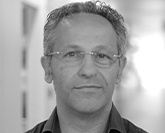
CIBERNED, Hospital Universitario Vall d’Hebron
Dr. Manuel Comabella earned his medical degree at the University of Barcelona, completed his neurology residency at the Neurology Department of the Hospital Universitari Vall d’Hebron (HUVH), and earned his PhD at the Universitat Autònoma de Barcelona. From 1996 to 1998 he was a Research Fellow in Neuroimmunology at the Center for Neurologic Diseases, Brigham and Women´s Hospital, in Boston. In 2010 was awarded with the Ayudas Merck Serono in the multiple sclerosis research area. In 2011 was awarded by the Spanish Society of Neurology (SEN) with the Biogen Idec Prize to the best publication on demyelinating disorders. In 2013 was awarded by the SEN with the Novartis Prize to the best oral communication and the best publication on demyelinating disorders. In 2014 received the Neurological Disorders Award, scientific modality, granted by the SEN. In 2016 was awarded with the Ayudas Merck Serono in the multiple sclerosis research area.
Since 2004, Dr. Manuel Comabella is the Head of the Clinical Neuroimmunology laboratory at the Fundació Institut de Recerca del HUVH. Since 2013 he is a member of the Internal Scientific Committee at the Fundació Institut de Recerca del HUVH. From 2013 to 2022 he was Coordinator of Neurosciences at the Fundació Institut de Recerca del HUVH. From 2018 to 2020 he was collaborator of the Biomedicine area at the Division of Coordination, Evaluation and Scientific and Technical Follow-up of the State Research Agency, Ministry of Science, Innovation and Universities. Since June 2008 he works as a clinical neurologist at the Department of Neurology / Neuroimmunology of the MS Centre of Catalonia (Cemcat), HUVH, Barcelona.
Dr. Manuel Comabella is Special Issue Editor-In-Chief of the Journal of Neuroimmunology, and member of the Editorial Board of Journal of Multiple Sclerosis Journal, Annals of Clinical and Translational Neurology, Cells, and Frontiers in Immunology. He is member of the Board of the ESNI (European School of Neuroimmunology) and member of the Strategic Group of the IMSGC (International Multiple Sclerosis Genetics Consortium). Dr. Manuel Comabella's research interest lies in the identification of biomarkers related with different aspects of multiple sclerosis and the development of new therapeutic strategies for the disease.

Neurólogo. Director Científico Fundación CITA-alzheimer Fundazioa Donostia-San Sebastián
Graduate in Medicine and Surgery at the University of Navarra and specialist via MIR in Neurology. Since then, I have worked in the field of care, research and teaching in the field of cognitive impairment in various institutions such as the Virgen del Camino Hospital in Pamplona, the Landazabal Psychogeriatric Center in Burlada, the Memory Disorders Unit of the University Clinic of Navarra, Fundación Alzheimer Center Educacional-Institut Catalá de Neurciències Aplicades in Barcelona and the Center for Research and Advanced Therapies of the CITA-Alzheimer Foundation in San Sebastián.
I have specialized in caring for people with cognitive impairment and dementia and research in Alzheimer's disease, vascular cognitive impairment, and other dementias, with a special interest in early detection and diagnosis, treatment and prevention.

MD, PhD , Neurologist Clinical Director at Neurological Clinic Sorpesee
Dr. Francisco Pan-Montojo is since July 2023 Clinical Director at the Neurological Clinic Sorpesee. In parallel, he has an affiliation at Biodonostia Health Research Institute were he develops part of his research activity within ALS and other neurodegenerative diseases.
Since 2014 he is leader of a Clinician Scientist Research Group at the LMU University Hospital in Munich combining his work as clinician with basic research in his lab. Dr. Pan-Montojo´s research focuses on the pathophysiology of neurological diseases, especially Parkinson´s disease (PD), and the development of neuroprotective drug candidates.
As a Clinician Scientist Group focused on translational research, his lab combines the use of a broad spectrum of techniques ranging from in vitro approaches such as: neuronal culture models of several neurological diseases or microscopy-based calcium imaging, molecular biology to several in vivo C. elegans and mouse models for neurological diseases such as ALS, PD or psychiatric diseases such as PTSD and depression or experimental treatment on patients. Since joining the LMU University Hospital in 2014, Dr. Pan-Montojo has been involved in numerous studies on PD, ALS and stroke as Principal Investigator and Co-Investigator.
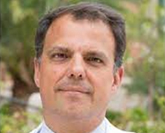




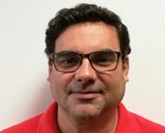
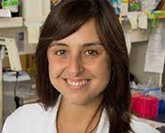
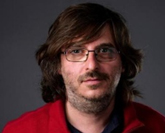
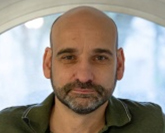


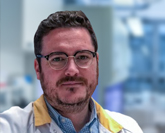
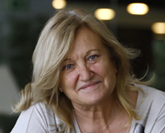
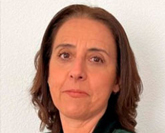
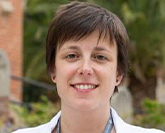

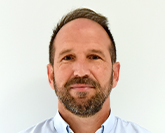
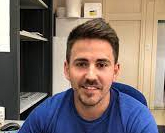
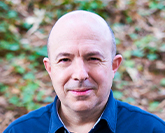
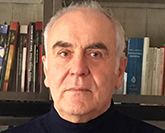
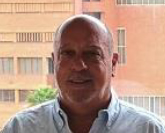
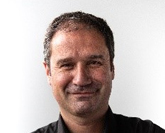
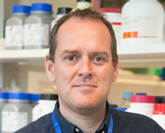



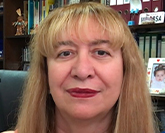
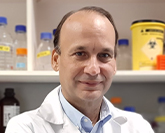
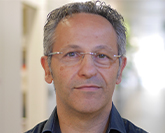
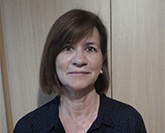
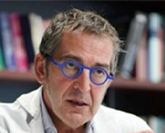

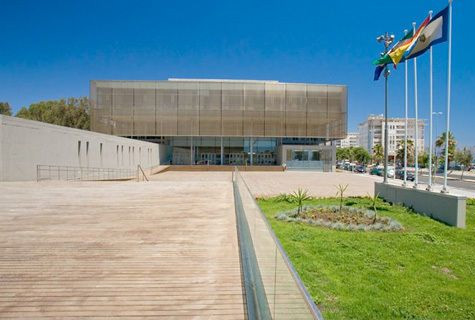
Auditorio Edgar Neville de la Diputación de Málaga.
C/ Pacífico, 54, 29004 Málaga.
The form has been sent successfully.
Thank you



